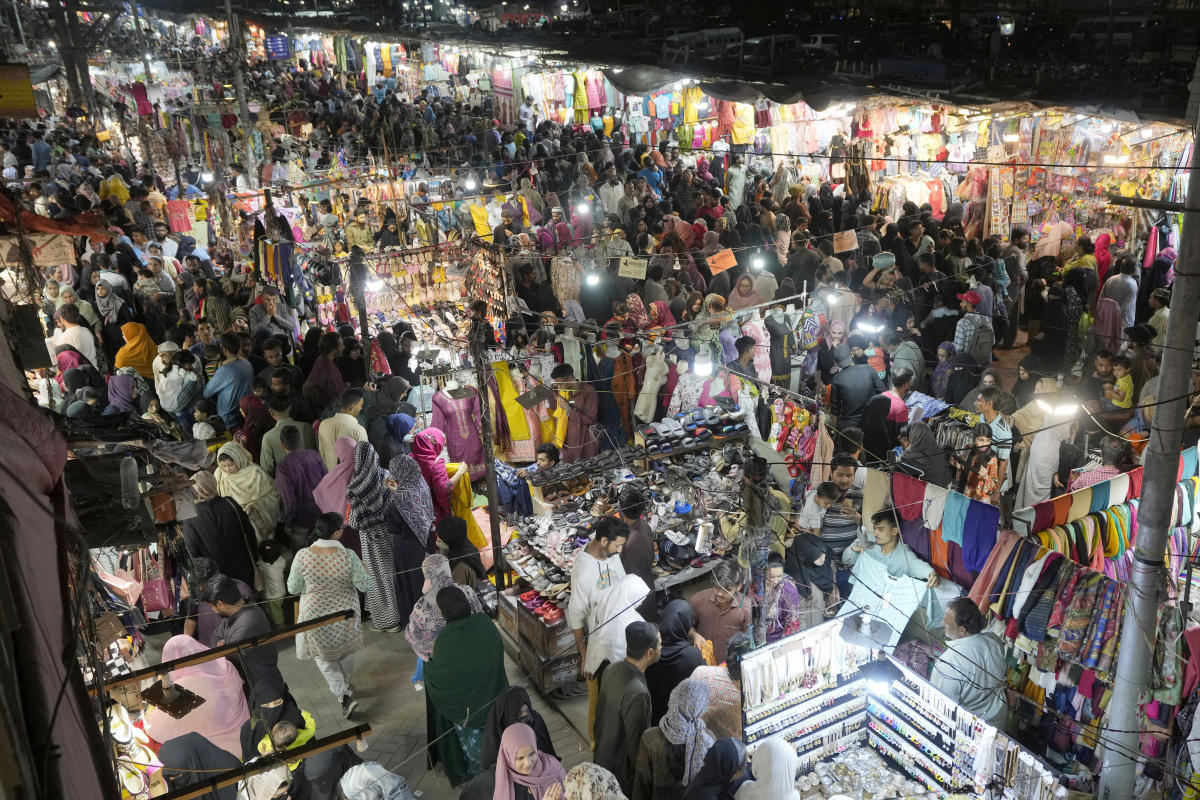Eid al-Fitr, which means feast, will be celebrated in Pakistan on Wednesday, subject to sighting of the moon. The three-day holiday marks the end of Ramadan, Islam’s holy month of fasting.
Though attacks during Eid are rare in Pakistan, Intelligence agencies alerted the Interior Ministry that militants could use the holiday to target civilians, government and military buildings, and compounds housing police, officials said. The country has witnessed a surge in militant attacks in recent years, mostly claimed by Pakistani Taliban and separatists who mainly operate from the southwestern Baluchistan province.
Security was also being beefed up at places where high-profile personalities are expected to say their Eid prayers.
Taliban spokesperson for the Interior Ministry Abdul Mateen Qani said forces were fully alert to ensure security during Eid al-Fitr in Afghanistan. He said security forces will be deployed in all crowded areas, including mosques.
In addition, the police chief office in the capital, Kabul, has requested that citizens avoid setting off fireworks or otherwise disturbing the peace.
Abdullah Khan, a senior defense analyst and managing director of the Islamabad-based Pakistan Institute for Conflict and Security Studies, said he had no specific information about possible attacks, but “militants can hit soft targets, as people in a large number say their Eid prayer at mosques and open places.”
On Tuesday, people were shopped as usual at various markets, with women buying bangles, jewelry and clothes for themselves and their children.
More than 52,000 police were being deployed at mosques as part of a security plan under which about 8,000 police were sent to sensitive places and markets in the provincial capital Lahore, according to a statement issued by Punjab police. Punjab is the country’s most populous province and the home city of Prime Minister Shehbaz Sharif, who was elected in March by lawmakers in Pakistan’s National Assembly despite protests and allegations that the election was rigged.
___
Associated Press writers Rahim Faiez in Islamabad; Riaz Khan in Peshawar, Pakistan; Babar Dogar in Lahore, Pakistan; and Abdul Sattar in Quetta, Pakistan, contributed to this story.
